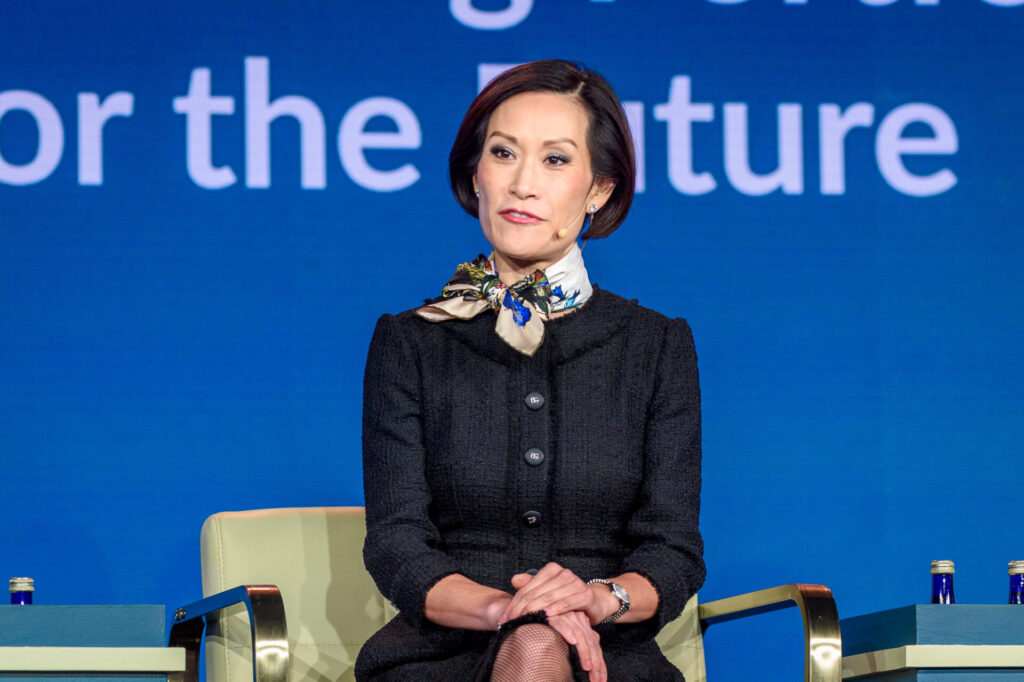
# 83% of all leaders felt unprepared for their leadership roles. – Development Dimensions International.
# The average tenure at S&P companies has decreased 20% from six years to under five years. – Equilar, Executive Compensation.
# 57% of top executives want to talk about personal challenges more than their business strategy. – Bower Forum Programme, McKinsey.
Being a great leader today might sound like a mission impossible but it’s not; it’s a leadership journey and a process that if done right, yields into an increased bottom line.
Research shows that businesses that focused on human capital development in addition to financial performance reduced their earnings volatility and were more likely to remain high performers over time .
The business world needs more logical as well as human-centric leaders because the circumstances demand it. Today’s leaders must deal with complexities of digital transformation, cybersecurity, artificial intelligence and generative AI, as well as the lack of talent, diversity and the growing need of employees to be inspired.
What does it mean to be a more human-centric leader?
Human-Centric Leaders as represented by some of the best CEOs today understand how to connect and inspire people, while at the same time stay strong-headed on financial results.
Senior partners at McKinsey have learned from the years of practice as consultants and from coaching executives at the Bower Forum, and other leadership development programmes, that the best leaders learn to be more self-aware and self-reflective. Both are needed for personal growth.
Research shows that the best leaders learn to lead from the inside-out (Read: How To Increase Bottom Line) by addressing questions related to their:
Humility, Confidence, Selflessness, Vulnerability, Resilience and Versatility.
Leadership Development 1: HUMILITY
Noam Chomsky once said that being educated is not about accumulating knowledge but being able to find what you need to know. Particularly in today’s complex world it’s less about what you know, and more about knowing what you don’t and where to get it .
Here are some questions for addressing, improving and balancing the area of humility:
1. Do you always feel like you have all the answers?
2. Do you tend you ignore the input from others (peers, advisors, team)?
3. Do you listen to affirm what you already know?
4. Do you need to improve your listening skills?
5. Do you have people around you that you can trust?
6. How would you evaluate your openness to new ideas, and your curiosity?
Leadership Development 2: CONFIDENCE
Listening to others and considering different points of views isn’t about giving your power away.
Excellent leaders have the ability to remain humble and at the same time, have the wits and strength to make the final call.
First thing about confidence is to remember that you’ve been entrusted with your role for a reason; you belong where you are. But you also have to be aware that leadership development is an ongoing process. While you have to foster your strengths, you also have to be aware of what’s required to succeed in a new role.
Here are some questions for addressing your confidence level:
1. Do you feel that you have what’s needed to act in the desired direction of your organisation?
2. Are you aware of what’s keeping you back, especially when you get uncertain?
3. Do you have a sense of direction? (Read: Jeremy Irons Story)
4. Are you aware of your strengths, how do you apply them daily?
5. What new skills do you need to learn to stay ahead of the curve?
6. What kind of people do you need around you to support your tenure?
These are some of the themes/questions that get addressed among top executives in confidential settings such as the Bower Forum.
What steps are you taking to develop yourself as a leader?
Source:
The Journey of Leadership. How CEOs Learn To The Lead From Inside Out. Maor Dana, Kaas Hans-Werner, Strovnik Kurt, Srinivasan Ramesh. Senior Partner, McKinsey. 2024. Portfolio | Penguin.

